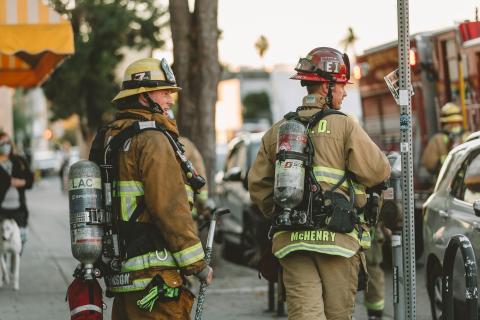Photo by Spencer Davis on Unsplash
In the midst of historic and devastating wildfires in Southern California, the Federal Emergency Management Agency has issued guidance and tips for impacted individuals and families.
As of today, more than $5.3 million in FEMA assistance has been distributed to survivors to help cover immediate expenses such as emergency supplies, including food, water, baby formula, and temporary housing.
FEMA has also issued the following steps and resources for those seeking recovery assistance.
FEMA Assistance for Fire Survivors
FEMA provides financial assistance for basic needs. Even if someone has insurance, they may still be eligible for FEMA assistance to help cover costs that insurance does not.
If a person or family's primary residence was affected by the fires, FEMA may provide help with replacing personal property, paying for temporary housing, or making essential repairs to the home.
However, it must be noted that FEMA assistance is designed to help people without insurance or whose insurance doesn’t fully cover recovery expenses.
Anyone with insurance should file a claim with their provider immediately. They should also have insurance details on hand and ready to provide in detail when applying for FEMA assistance.
How to Apply for FEMA Assistance
Survivors can apply for FEMA assistance through several channels:
- Online: Visit DisasterAssistance.gov or DisasterAssistance.gov/es for Spanish-language support.
- Phone: Call the FEMA Helpline at 1-800-621-3362, available in multiple languages.
- FEMA App: Apply via the FEMA app on a mobile device.
An accessible video on how to apply is available online at FEMA Accessible: Registering for Individual Assistance (English) and en Español.
Replacing Lost Documents
Survivors who lost vital documents, such as government-issued IDs, property titles, or birth certificates, can request replacements through the California Department of Motor Vehicles (DMV) or other state agencies. Visit ca.gov for a full directory of resources to help replace lost documents.
Preparing for Safe Cleanup
Survivors should only return to their properties if local authorities have declared the area safe. When cleaning up, wear protective clothing such as a long-sleeved shirt, long pants, work gloves, and sturdy shoes. Use a respirator to minimize inhaling dust, and wet debris when possible to reduce airborne particles.
Individuals with respiratory conditions like asthma or COPD should take extra precautions in areas with poor air quality.
Mental Health Support for Survivors
The emotional toll of the wildfires is significant. FEMA, along with state and nonprofit partners such as the American Red Cross, is offering support for survivors who may be struggling emotionally. The Disaster Distress Helpline is available 24/7 at 1-800-985-5990.
For those seeking temporary shelter, text SHELTER and your ZIP code to 43362, visit redcross.org/shelter, or call 1-800-RED-CROSS (1-800-733-2767) for assistance, including help locating missing persons.
